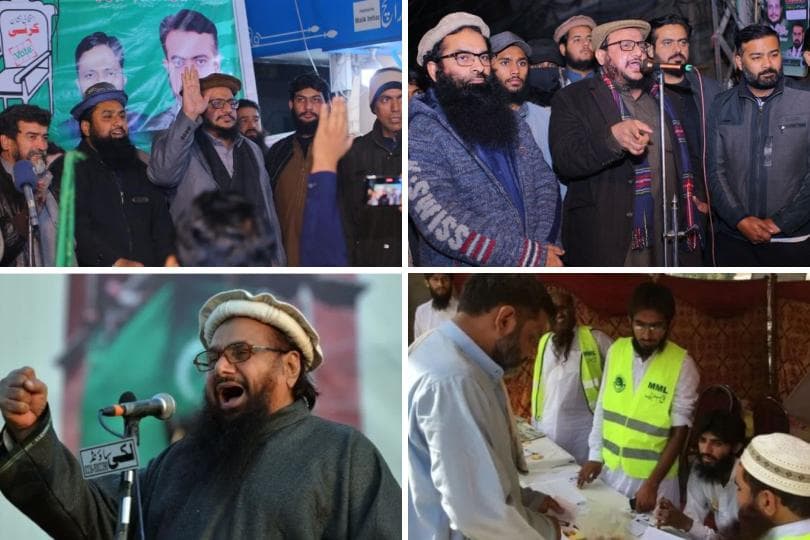Jihadists Turn Politicians in Pakistan Elections

The political landscape of Pakistan witnesses a pivotal shift with the emergence of the "Central Muslim League" (CML), a new political party slated to participate in the upcoming general elections on February 8th. The CML, reportedly the political wing of Jamaat ud Dawah (JuD), fields candidates with direct familial and ideological ties to Hafiz Saeed, the chief of Lashkar-e-Taiba (LeT), a militant group implicated in various terrorist activities, including the 2008 Mumbai attacks.
Key candidates include Hafiz Talha Saeed, Saeed's son, running for NA 122 Lahore, and Hafiz Naik Gujjar, his son-in-law, contesting in PP 162 Lahore. Additionally, several candidates, such as Mohammed Fayaz Ahmed, Faisal Nadeem Shaikh, Mohammad Haaris Daar, and Muzzamil Iqbal Hashimi, find themselves on the US terrorism list, highlighting the controversial nature of CML's electoral bid.
Central spokesperson Tabish Qayum and leader Saifullah Khalid, a former LeT commander, are also under US sanctions, underscoring the deep-rooted connections between CML and Pakistan-based terrorist networks. This development aligns with the Pakistani military establishment's strategy to integrate anti-India jihadist groups like LeT into mainstream politics, aiming to legitimize their presence and influence. The registration of CML as a legal political entity by the Election Commission of Pakistan marks a significant, albeit contentious, transition of jihadists to potential lawmakers, raising concerns over the implications for regional security and counter-terrorism efforts.


































